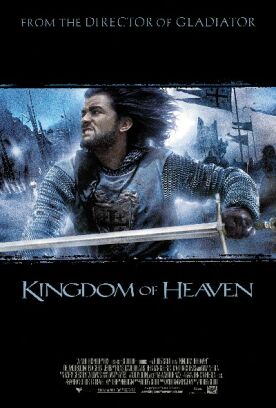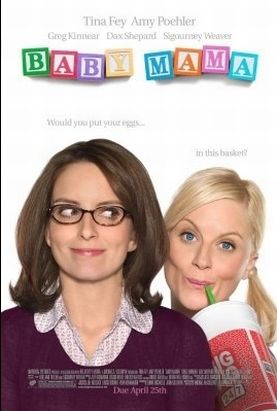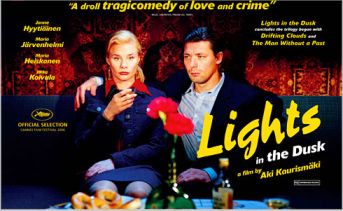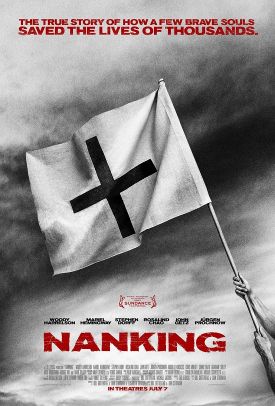Kingdom of Heaven
Sir Ridley Scott’s Crusades movie, Kingdom of Heaven, though visually impressive as we might expect, is shockingly unhistorical. I know that this is not supposed to matter and probably will not to the historically illiterate 13-year-olds who will make up its main audience, but the rest of us might at least want to be aware of the crudeness of the historical mise-en-scène, which could scarcely be greater if Sir Ridley and his screenwriter, William Monahan, had had their12th century knights riding into battle in Humvees. But because most of the anachronisms he deals in are moral rather than material they will probably pass unnoticed. And what, you may ask, is the moral of the story? Well, it’s not as if you couldn’t guess. Turns out that the Crusades were not the struggle between Christians and Muslims that you might have thought they were but between both Muslim and Christian religious fanatics on the one hand and modern tolerant liberals like the film-makers — oh and, by the way, everyone else in Hollywood — on the other. Who knew?
The most hilariously idiotic of the film’s many historically stupid moments comes at the climax of the battle for Jerusalem in 1187 when Balian of Ibelin (Orlando Bloom), the commander of the city’s Christian defenders, has a parley with the leader of its Muslim besiegers, Saladin, here invariably given his more authentic moniker, Salah al-Din (Ghassan Massoud). Nice that they insist on accuracy in something. Balian tells his adversary that he will surrender the city if the Muslim army will give its Christian inhabitants a safe-conduct to the sea, where they may take ship to return to Europe. The terrible alternative, Balian tells him, is that he will give the order for all the religious sites in the city to be destroyed: “Your holy places, ours — everything that drives men mad.” It’s hard to imagine a more perfect example of Hollywood’s view of religion — or of a thought that would have been more unthinkable to the person supposedly uttering it.
Such words would have been sheer gibberish — evidence of madness themselves — in an age in which “religion” was inseparable from the culture. Another character says “I put no stock in religion” and generally speaking we are to understand that neither does anyone else who is in the least sympathetic here. The only true religious believers, at least on the Christian side, are thugs and murderers. But at the time of the Crusades “religion” wasn’t the optional Sunday-morning pastime it has since become. It was a matter of identity. For someone to say “I put no stock in religion” would have been as nonsensical as saying “I put no stock in being my father’s son.” People’s religion wasn’t just what they believed, it was what they were. In other words, like so many movie-makers before them, Scott and Monahan have looked into the past and seen nothing but their own silly faces looking back at them.
Here are a few other historical howlers.
Balian, the hero of the film is not only a proleptic liberal secularist, he’s also a humble blacksmith who becomes a knight overnight — or overknight, I guess, like Sir Ridley himself. A quick tap with a sword and a quick lesson in swordsmanship from his long-lost father, Godfrey (Liam Neeson), and Balian becomes the top knight among the Christians and in short order is given command of all the Christian armies. But though military science was very different in those days, it was no more to be picked up in a day or two — or a year or two — than it is today. The profession of knighthood was a highly skilled one and something that any effective fighter, let alone a commander, would have learned over many years and many battles.
Where the blacksmith turns out to be an expert soldier with little or no training, the experienced soldiers among the Christian knights, especially Balian’s archenemy Guy de Lusignan (Marton Csokas), are so stupid that they march off to do battle with the Saracens apparently unaware that they will need water. Like all the other examples of Christian stupidity, this is presumably attributable to their religion. So, obviously, is the fact that Guy is so credulous that he thinks God will give him victory against a vastly superior Saracen enemy and without any special preparation just because he is a Christian. Of course the Christian knights are slaughtered. Even granting Sir Ridley his premiss that Guy and all the other Christians, especially the Templars — remember them from The Da Vinci Code? — are fools for believing at all, I’d like to see the historical warrant for supposing that any of them were as foolish as this.
Once all the knights are slaughtered or fled, Balian the overnight knight takes charge of the defense of Jerusalem by repeating his own experience and dubbing hundreds of knights at once from among the unmilitary rabble. “Will your making them knights make them better fighters?” asks the craven Bishop.
“Yes,” says Balian, obviously an adherent of the Norman Vincent Peale, Power of Positive Thinking school of warfare himself. Well he ought to know.
Though all the knights who weren’t killed have left the city, they have apparently left behind all their armour, equipment and weaponry for the use of the overknights in its defense. Or perhaps Saladin shipped the dead knights’ kit back from the battlefield to give his enemies a sporting chance. It could happen! Obviously, Saladin is a decent guy, unlike the Christians. And when Balian, naked and on foot, defeats an Arab knight, armed and armored, on horseback he does so by urging him to “fight fair.” The Arab knight then obligingly dismounts, though in the 12th century the idea of “fighting fair” would have been approximately as unfamiliar as that of agnostic religious tolerance. It just couldn’t have happened like that. Nor would any knight in his right mind have parted from his armor or weapons without being dead first. These were precious things, usually made for them personally. All knights knew that their lives depended on them, whether or not they were on a battlefield.
Equally improbably, Guy’s toothsome young wife Sibylla (Eva Green) openly despises him and gads about the countryside on her own in some very fetching clothes and make-up like something out of Sex and the City on horseback. Naturally she throws herself at hunky Balian. Later, in a snit because Balian has conscience pangs about killing Guy to marry his widow, she goes back to her husband and becomes Queen. But — and here comes a spoiler, folks, as if you couldn’t guess it for yourselves — she gives this all up for Balian in the end, returning with him to France and life as a humble blacksmith’s wife. When King Richard the Lion-Heart of England stops by his smithy on the way to the next futile Crusade, looking for the legendary Balian, he simply says: “I’m the blacksmith.”
Easy come, easy go to the knighthood then. But he and Sibylla have obviously managed to hang on to some of the wealth from their days in power — she has a very chic fur cape, for instance — so it’s not as if the whole wealth thing is an issue here as it was, really (according to Jeremy Irons’s wise old Tiberias), for all the other crusaders. Why not stick with the pretty wife, add an extra wing to the house, be a rich blacksmith and let the quality, driven to madness by their incomprehensible religious delusions, get on with slaughtering each other without any help from him. Hell no, he won’t go. Does anyone suppose this to be a scenario likely or even a possibly to have taken place circa A.D. 1200?
I could, as they say, go on. Though without any particular expertise or knowledge about the Crusades themselves, I think a very basic historical knowledge should be sufficient to realize that it is mere nonsense to make the lesson they teach the virtues of liberal and secular governments in the holy land a good half a millennium before people had any idea of the existence such things. Whatever the truth about the Crusades, this cannot be it. Or even close to it.
Discover more from James Bowman
Subscribe to get the latest posts to your email.








